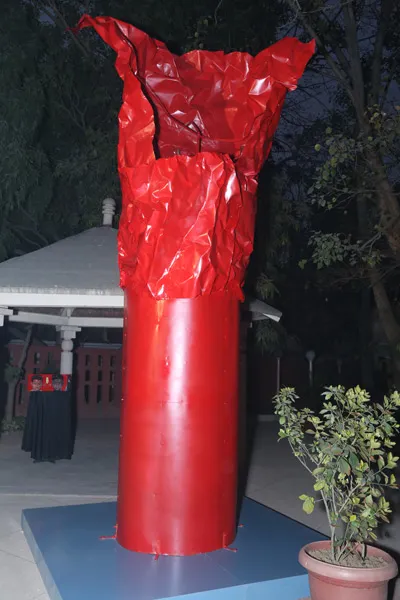Surbhi Modi, an artist, curator and entrepreneur, on her path to bringing art to public
As one walks into Surbhi Modi’s Chattarpur Farm residence in Delhi, a glorious painting by M F Husain is the first thing that catches one's eye. But Surbhi steers you to what fascinates her the most – a set of three life-size sculptures of women by Arun Pandit – titled Maa Pareshan Kyun Hoti Hai – which has abuses often hurled at women printed all over one. In the next room, she points out another astonishing work and also her first art purchase – a pink-faced portrait of Chinese actress Zhang Ziyi by British artist Jasper Joffe. “I have always been drawn to art which is not necessarily pretty but evokes a reaction and challenges you to think about our society.” Larger than life, unusual and thought-provoking – this is also the basis of Publica, Surbhi’s curatorial project and one of the most talked about public art festivals in the country.
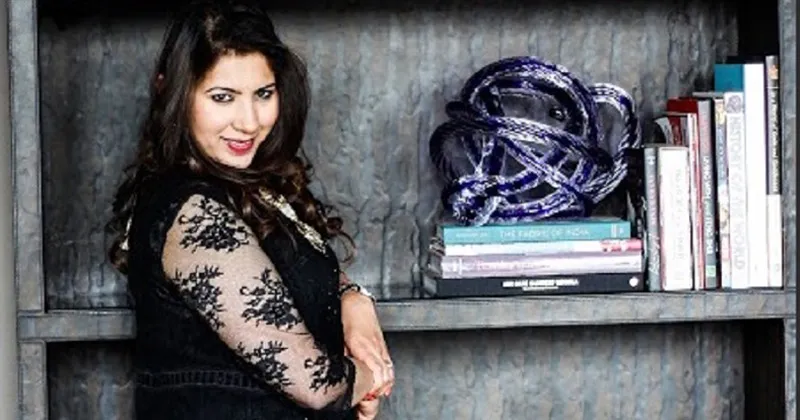
Publica’s second edition was launched as a collateral event with the recently concluded India Art Fair in Delhi. It includes artworks by Gigi Scaria, Anant Mishra, Owais Husain, Deepjyoti Kalita, Krishna Murari, Tushar Joag, Jasone Bilbao, Bhuwal Prasad and Raktim Parashar, which have been installed over nearly twenty public venues in the city, ranging from cultural centres and metro stations to parks and shopping malls.
Taking Art to the Public
“The idea of the festival is to remove artworks from their limiting traditional setting of museums and galleries and put them in view of broader audiences, to try and drive engagement in the arts and promote cultural change at grass roots,” says the 32 year old. Venues for artworks in this edition include Indira Gandhi International Airport, Shanti Path, Nehru Park, Children's Park, Select Citywalk in Saket, DLF Emporio in Vasant Kunj, Nizamuddin Basti, India Habitat Centre and Cyber Hub Gurgaon, and will be open for public till February 29.

“I sensed that in India the art market was an intimidating one for the uninitiated. Many are still daunted by the thought of entering a gallery, and even Delhi’s top public galleries and museums remain underfunded and lackluster. Entertainment still means going for the movies or to the mall,” says Surbhi, whose main aim in setting up Floodlight was to bring art to the people.
Publica is organised under the aegis of Floodlight Foundation, a nonprofit artist mentoring and management agency founded by Surbhi three years ago. Her entrepreneurship effort works on two levels: macro, as a producer and presenter of public art, and micro, as a promoter and creative mentor of young emerging talent. Floodlight provides artists with studio spaces where they can develop their works. “We also help artists develop their portfolio, act as their representative, liaise with galleries and art residencies and secure commissions for the artists. In the future, Floodlight will also promote the work of artist and designers on its roster through its online gallery to help discoverability of their work,” Surbhi explains. While acting as a platform for young and emerging artists, Floodlight also intends to build art awareness and appreciation among collectors, and broaden the base of art connoisseurship.
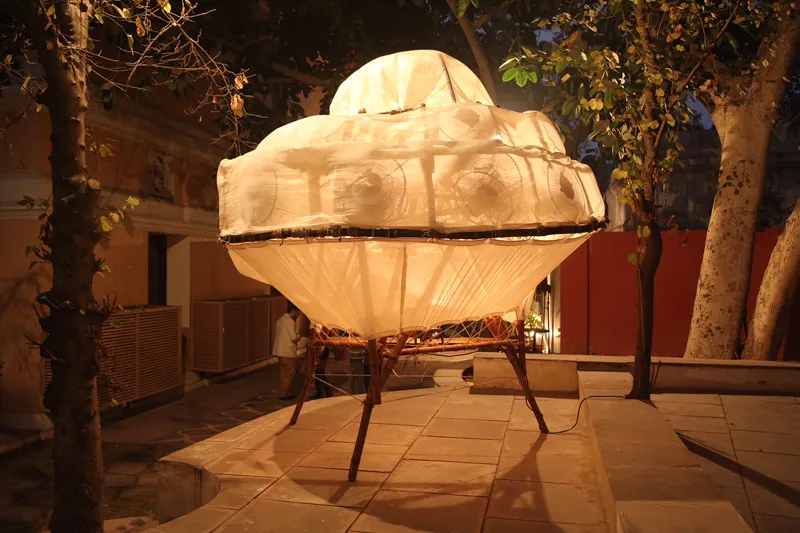
Sculpting her own path
“I was an all-rounder in school and used to win all creative drawing competitions,” Surbhi says. Interestingly, she studied Commerce at Convent of Jesus & Mary and went on to do an MBA from IMI, New Delhi. When she joined her father’s business full time, it was her creative side that came to the fore. “At Stic Pens Ltd, I was involved mostly with the aspect of visual merchandising. But I was also always a good negotiator. I was only 23 when I was able to put Stic Pens in places like Big Bazaar and Walmart,” she says. But even though marketing was her forte professionally, in her personal life, the calling for art always persisted. She found time to study sculpture at Triveni Kala Sangam under Saroj Jain, made oil paintings in her leisure time and when her husband, Karan Modi, opted to study at London Business School, she did not sit idle either.
Surbhi joined the masters programme in art history at Sotheby’s London in 2011. She ensured that in a very brief time after returning from London in August 2012, she fulfilled the three assertions she had made in her Statement of Purpose for Sotheby’s.
I wanted to push my own art practice as a sculptor, wanted to work towards education in art, and finally set up a foundation to help young artists.
Surbhi is also part of the advisory committee of the International Institute of Fine Arts (IIFA) where she has led several initiatives to increase interactions and strengthen links between the industry and the university.
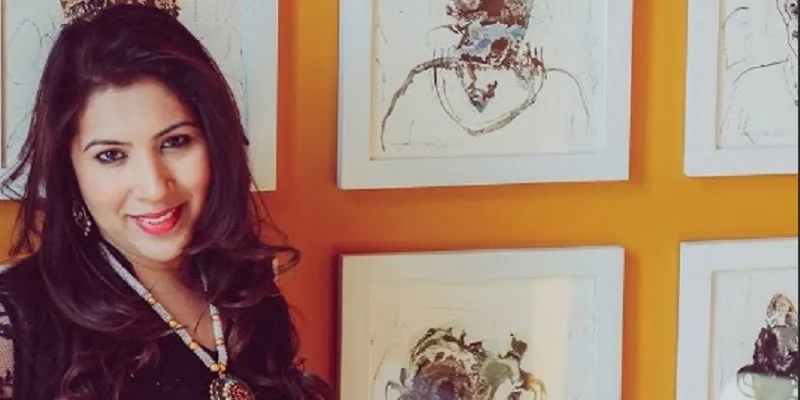
Sometimes, Surbhi sculpts under the pseudonym of Suchamo - short for Surbhi Charla Modi, so that her work stands on its own, without any pre-conceived notions. At her residence, amongst scores of art books, rests a human head sculpted in silicone. Titled Sloth, the work represents and modernises the Biblical theme of the seven deadly sins, this one being about human lethargy and nonchalance. She has exhibited in London twice – in 2013 and 2014 - and hopes to take up painting and sculpting again. “I aim to soon have a work of mine in Publica as well,” smiles Surbhi, who also juggles the role of mother to the nine-month-old Sumair with that of an entrepreneur with equal ease.
In fact, she has had the opportunity to curate a show for Olympia Art Fair in 2011, as part of an awareness drive for Arts for India, a UK-based charity. 2013 was the first edition of Publica and in April 2014, she curated the exhibition Beauty in the Beast, at the Alliance Francaise, New Delhi, celebrating Francis Bacon’s notion of ordered chaos and showcasing some of India’s most promising artists.
Discovering Talent
Floodlight has also succeeded in discovering talented young artists. Bhuwal Prasad is one such name. He had his first solo show with Floodlight, and went on to be part of the Beijing Biennale in 2015. He is now slated to have a solo exhibition in Germany next year. Other artists working with Floodlight like Anant Mishra, Ram Dogre, Rajesh Srivatsava, Sitanshu Maurya and Abhijeet Pathak are doing equally well.
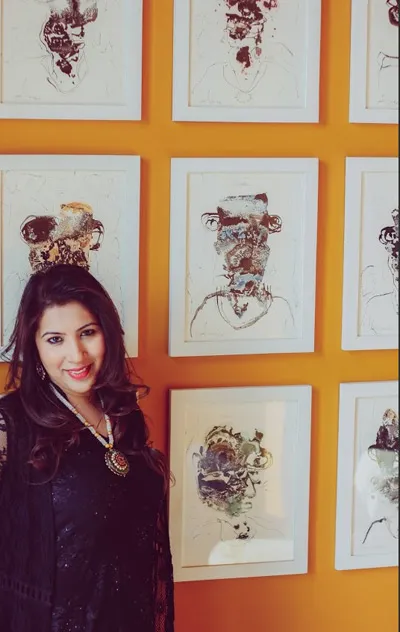
Educational outreach is a fundamental pillar in Surbhi’s curatorial approach and, currently, Publica works with several partnerships, including ArtReach, which will be running an arts project with underprivileged children, and Safe Educate, for live painting of a mobile container school by artist in residence Bhuwal Prasad.
Publica would also like to encourage the public to vote for their favourite work which will be donated to the city for display for a year in the hope that it will encourage a groundswell of support towards more public art in our cities.
Speaking of the future, Surbhi wants projects created for Publica to find permanent space. “Currently, we run the festival for about a month but my ambition is that these art works should be installed permanently at malls, airports, hotels etc.” Going by the success of Publica in its second edition itself, this may soon be a reality.
